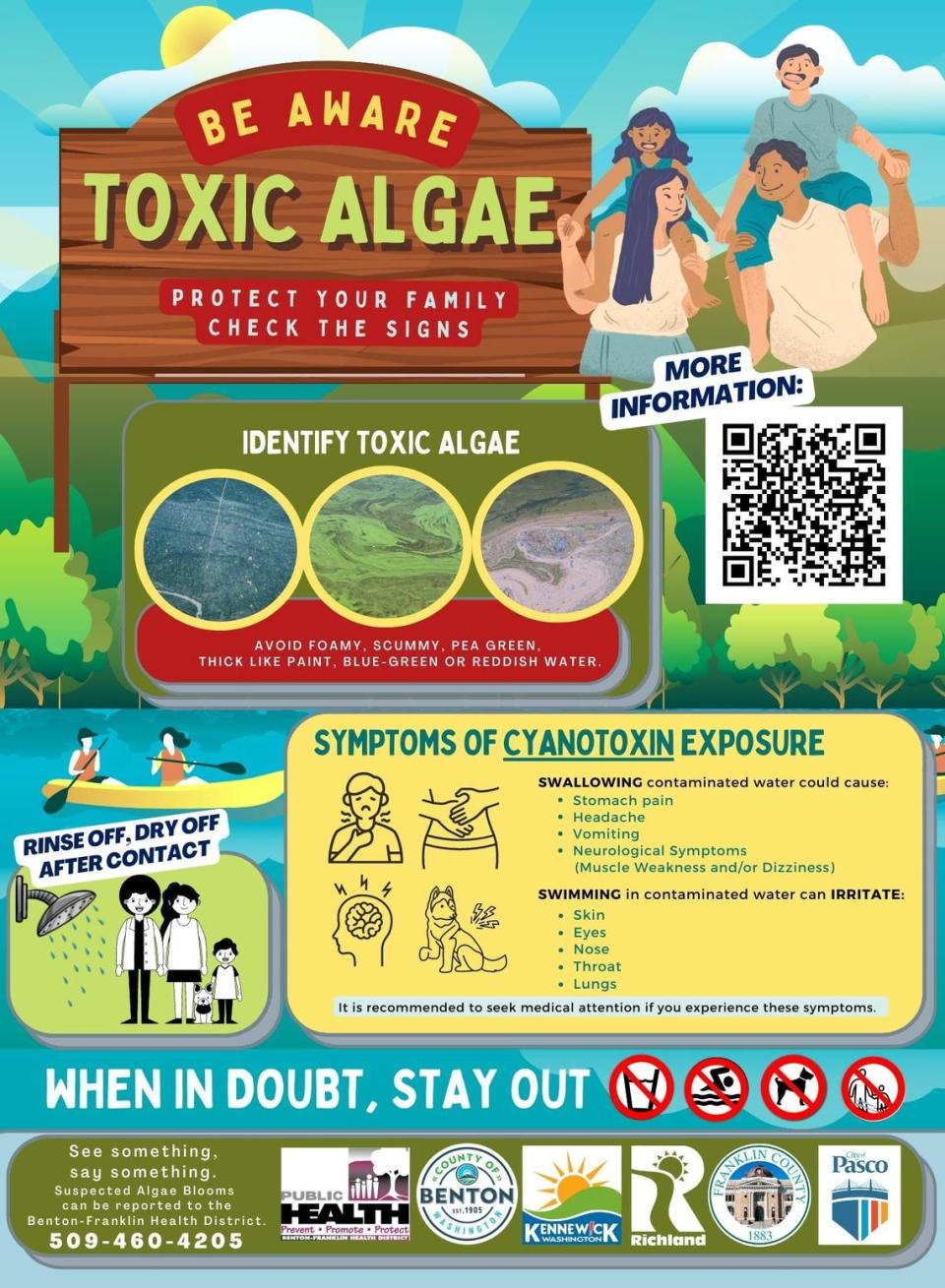No swimming allowed for people, dogs at popular Tri-Cities beach
People and their pets should stay out of the Columbia River at Richland as tests continue to show high levels of toxic algae in the water at the Howard Amon Park swim beach.
The Benton Franklin Health District recommended staying out of the water there on Aug. 18 due to the results of water tests then and posted warning signs.
It has continued to test the water, with the latest test results received Friday just as Labor Day weekend was expected to bring more people to the park for the unofficial end of summer.
Results showed that the neurotoxin anatoxin-a was present at a level substantially higher than what is considered safe recreational use, according to the health district.
The toxin is especially dangerous for small children and animals.
Two summers ago several dogs that had played in the Columbia River in Richland and just upstream died, and sampling of river water showed the same cyanobacteria as found this summer.
People and dogs are exposed to the toxin released by bacteria in the scum on the river water by ingesting the water or inhaling spray from the river. Dogs can ingest the toxin by licking their fur.
Symptoms of the toxin, which attacks the nervous system, can appear withing 15 to 20 minutes, depending on the size of the person or animal and the amount of toxins consumed.

Exposure in animals may result in weakness, staggering, difficulty breathing, convulsions and death.
In people signs may include numbness of the lips, tingling in fingers and toes, and dizziness. They should seek medical attention, according to the health district.
People catching fish in areas with a major toxic algae bloom, should be aware that the neurotoxin may accumulate in the liver, kidneys and other organs of fish. They should remove the internal organs, which may contain more of the neurotoxin, and consider not eating the fish.
The Tri-Cities municipal governments have treatment processes to neutralize the toxin in drinking water.
The Benton Franklin Health District will continue to collect samples of river water weekly until test show the water is safe for two weeks in a row.
Avoiding contaminated water
If you are looking for a place to play in the water, particularly in the summer or fall when toxic algae is most likely to be present, the health district recommends:
• Look for warning signs and for signs of toxic algae blooms in the water. It make look like green, blue, brown or reddish green paint floating on the water. When in doubt, stay out.
• After swimming or playing in the water, shower with soap and water.
• Report suspected toxic algae blooms online at the Washington State toxic algae tracking site at nwtoxicalgae.org or to the Benton Franklin Health District.



